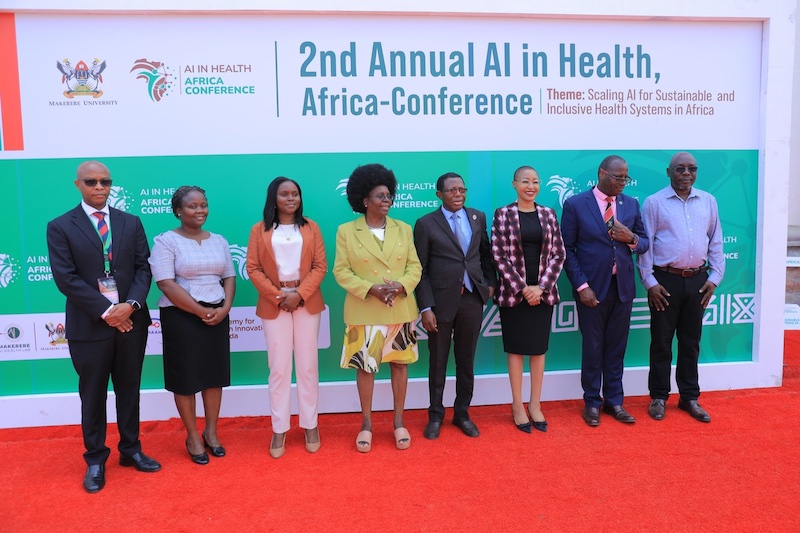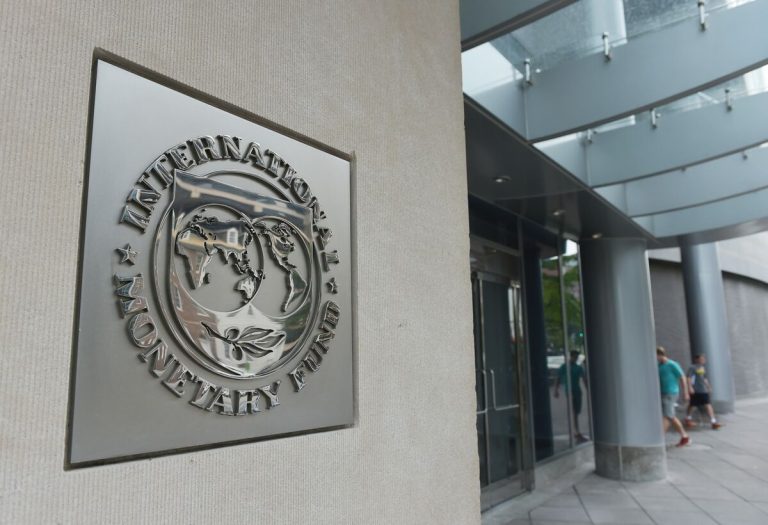
The 2nd AI in Health Africa Conference has called upon policymakers, researchers, innovators, health personnel and industrialists in Africa to lead their own digital health revolution, by utilizing artificial intelligence (AI) solutions that are ethical, inclusive and tailored to local needs.
Held at Makerere University main hall on November 6 to 7, 2025, the conference was co-organised by the College of Computing and Information Sciences through the Makerere AI Health Lab, and the Infectious Diseases Institute.
With theme, ‘Scaling AI for sustainable and inclusive health systems in Africa’, the conference tackled revolution for Africa several subthemes such as AI policy and ethics in healthcare, looking at regulatory frameworks, data governance and ethical considerations; AI literacy and capacity building for healthcare professionals, looking at training and upskilling efforts to leverage AI tools; and threats and opportunities of generative AI in healthcare, especially as regards medical research, diagnostics and decision-making.
Other subthemes included localisation and contextualization of AI in healthcare, addressing language barriers, utilization of indigenous knowledge and cultural adaptations; leveraging AI to strengthen existing healthcare systems and workflows including enhancing the interoperability of AI with existing healthcare infrastructure and digital health tools; and sustainable business models for AI innovations, by showcasing some groundbreaking AI-driven solutions in diagnostics, treatment and patient management, and exploring economic strategies tailored to traditional and indigenous healthcare systems.
Dr Rose Nakasi, the founding lead and principal investigator at Makerere AI Health Lab, noted that AI is no longer a myth but a reality that is improving the entire wellbeing of humanity.
“We attest to the power and utility of AI, and we must be the producers of AI that is tailored for us and by us as Africans. We have the knowledge and the spirit to drive this technology to transform our healthcare. We must be intentional, especially on how to serve large numbers of patients wherever they are, even in hard-to-reach areas,” she said.
Nakasi called for contextualizing it to fit our African unique cultures and social systems, and working as a collaborative team.
“Let’s tailor solutions like telehealth and diagnostics to serve remote patients and reduce diagnosis times. No one should innovate alone. To truly impact African healthcare, we must break silos and collaborate. Together, stakeholders can build an AI-powered future that benefits the Global South. Therefore, join the movement!”
Opening the conference, Dr Monica Musenero, minister of Science, Technology and Innovation, asked the attendees to actively participate in unpacking Africa’s role in shaping the future of AI in healthcare.
She talked against importation of technologies and building superficial models on top of other people’s foundations. “We must become creators, not just consumers. We must build our own foundations, own our data, and define our AI future on our own terms…. It’s better for us to design and produce our own iPhone 5 than procuring the latest iphone 17 to show off,” she challenged.
Musenero reported that government is setting up the Life Sciences Innovation Centre, to be opened in January 2026, to support technology companies that have scalable innovations that they are not able to scale.
“It’s time for Africa and especially Uganda to see unicorns sprouting out in the innovation space, the growing field of AI needs to take off in Uganda. We want 20 unicorns by 2020.”
Arguing that AI is not a tool but a skill, she assured that AI will not replace human beings but, rather, amplify human capacity. She, however, warned about being left out of the game.
“Digital is a country of its own. Digital suppliers buy and own space there as landlords. So, if you are not a landlord there, digital will not benefit you. We are often migrating jobs to other landlords because we don’t have our own. The important question is: can we procure space there by owning our own innovated technologies? Fellow scientists, let’s wake up! AI shouldn’t be just a driver of convenience; we must own a plot in the digital economy, the AI country. Ten years down the road, I want Uganda to be sitting on the decisions table.”
The conference also attracted five hackathon teams from Kenya, Nigeria, Nepal, Pakistan and Uganda, and exhibitions by different AI innovators.



